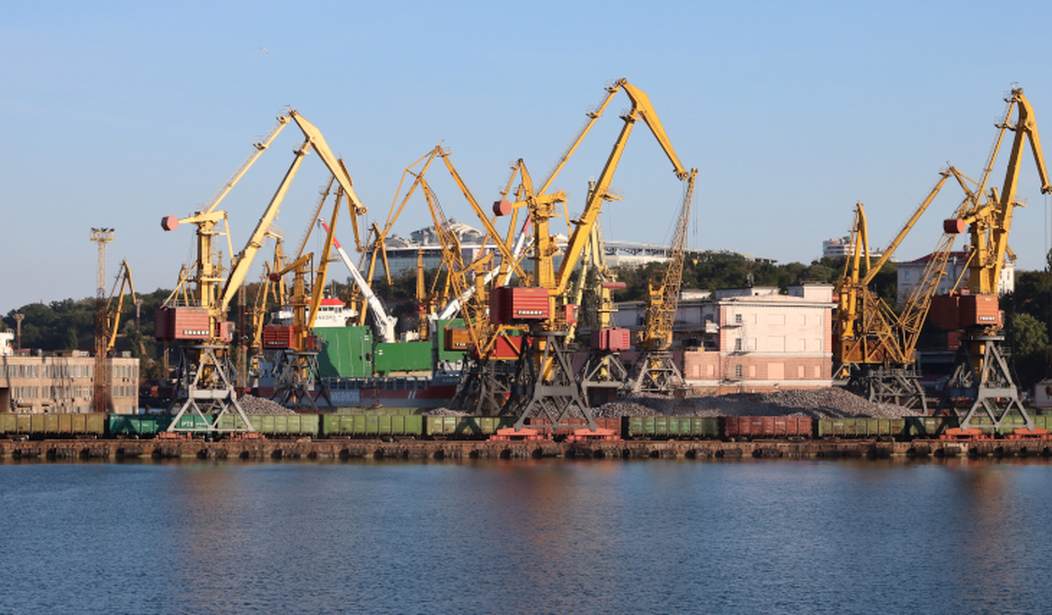Monday, Russia withdrew from the Black Sea Grain Initiative, a UN and Turkish brokered deal that allowed Ukrainian grain to pass through the combat zone to markets in the Third World. Ukraine is the world’s fifth-largest grain producer but is very important to global food security because a large portion of its yield is sold to developing countries, some of which would face famine without Ukrainian grain. In an announcement, Russia declared that as of midnight Wednesday, all shipping heading to Ukrainian ports would be assumed to carry military cargo and be treated as legitimate military targets.
Two days after Russia pulled out of the deal allowing Ukraine to ship grain through the Black Sea, Moscow took another step to hinder shipping, saying the Russian military would regard any ship bound for Ukraine to be a potential carrier of military cargo and their home countries to be Kyiv’s allies in the war.
The declaration appeared to signal that Moscow would consider commercial ships to be legitimate military targets and the countries where the ships are registered to be aiding Ukraine. While the statement did not say explicitly how Russia’s Navy would respond to a ship bound for Ukraine, the statement will almost certainly deter commercial shipping.
Russia, justifiably in my view, sees the deal as one-sided in which Ukraine gets cash, the Third World gets food, and Russia gets nothing. Putin had several demands that it considered non-negotiable before the Black Sea Grain Initiative could be renewed.
The demands set out by Moscow include the resumption of the transit of ammonia from Russia via Ukrainian territory to Pivdennyi port in Odesa, from where it is exported. Transit of ammonia, an important part of nitrogen-based fertilizers, was halted via the pipeline after Russia sent its troops to Ukraine last year.
Russia’s demands to improve its grain and fertilizer exports include the reconnection of Russian Agricultural Bank (Rosselkhozbank) to the SWIFT international payment system.
While Russian exports of food and fertilizer are not subject to Western sanctions, Moscow says restrictions on payments, logistics and insurance have amounted to a barrier to shipments.
Russia resumed mining Ukrainian ports to accentuate its refusal to continue the Black Sea Grain Initiative.
A White House National Security Council spokesperson has said that the U.S. has information indicating that Russia has laid additional sea mines in the approaches leading to Ukrainian Ports.
The U.S. is not ruling out that Russia might expand its attacks against civilian… pic.twitter.com/dAeitw0J8M
— Global: Military-Info (@Global_Mil_Info) July 19, 2023
They also targeted port facilities and grain elevators in Odesa.
Russian Army carried out massive combined strike with Kalibr, Kh-22 cruise missiles & Shahed-136 kamikaze UAVs on Ukraine’s Odesa Port last night. pic.twitter.com/3s5WCryxzU
— Clash Report (@clashreport) July 19, 2023
Eyewitness video filmed in Odesa last night. Earlier Russian terrorists claimed they destroyed “unmanned boats manufacturing and storage locations” in the city… 🤬#Odesa #Odessa #Ukraine #RussiaIsATerroristState #RussianWarCrimes #RussiaUkraineWar #Russia https://t.co/kqj0YVB1IJ pic.twitter.com/sWzyC6OMGt
— Natalka (@NatalkaKyiv) July 20, 2023
How much leverage Russia can wring out of the situation remains to be seen. The approaches to Ukraine are also the approaches to Romanian ports. It is difficult to believe that insurers will cover ships going through a war zone and mined waters—no matter their destination.
The Russian statement to attack civilian shipping going to any Ukrainian port can be add to the long list of poorly thought out Russian plans.
Ships going to the port of Izmail, Ukraine have to sail up through the Danube River on the border with Romania. pic.twitter.com/KTJVKPyGCL
— Oliver Alexander (@OAlexanderDK) July 20, 2023
For its part, Ukraine has declared the same rules apply to ships heading for Russian ports as those heading for Ukrainian ports.
BREAKING: Ukraine's Defence Ministry says that it may consider all ships travelling to Russian and Ukrainian ports occupied by Russia as potential carriers of military cargoes from midnight on July 21 "with all the associated risks"
´https://t.co/Hx4M21LmfD pic.twitter.com/S7M5ZKaVNu
— Faytuks News Δ (@Faytuks) July 20, 2023
Given Ukraine’s use of unmanned surface vehicles (USVs) to carry out attacks on the Kerch Strait Bridge (Russia’s Bridge to Crimea Heavily Damaged…Again…by Ukrainian Attack) and on Russian military shipping in port (Ukraine Carries out Extensive Drone Attack on Russia’s Black Sea Fleet Sevastopol Homeport), insurers will take this threat as seriously as they take Russia’s. In essence, the Black Sea is dead to commerce.
If Russia’s leading propagandists are to be believed, Russia is placing its bet on kicking off famine in the global south and using that humanitarian tragedy to get concessions from NATO. Here is Margarita Simonyan, editor-in-chief of RT.
“All our hope is in the famine, here is what it means
It means that the famine will start now, and they will lift the sanctions, and be friends with us, because they will realize it is necessary”
– Margarita Simonyan, Editor-in-Chief of RT
They are telling you, and you aren’t… pic.twitter.com/wwU9PRBpHr
— Mickey (@Mickey4x) July 20, 2023
“All our hope is in the famine, here is what it means It means that the famine will start now, and they will lift the sanctions, and be friends with us, because they will realize it is necessary”
I think we have to believe this because it is on official state television and directed at a Russian audience, and because the propagandists have been damned accurate in their statements so far. Also, this kind of casual brutality is absolutely on-brand for the Putin Regime and for Russia at large. If that comes to pass, it is easy to see the Turks stepping in to safeguard grain shipments and risk expanding the war in a direction Moscow never considered. An additional side effect of this is more support for Ukraine wresting control of Crimea, particularly Sebastopol, from Russia because with a Russian base in Crimea, Ukrainian grain shipments will never be safe or guaranteed.














